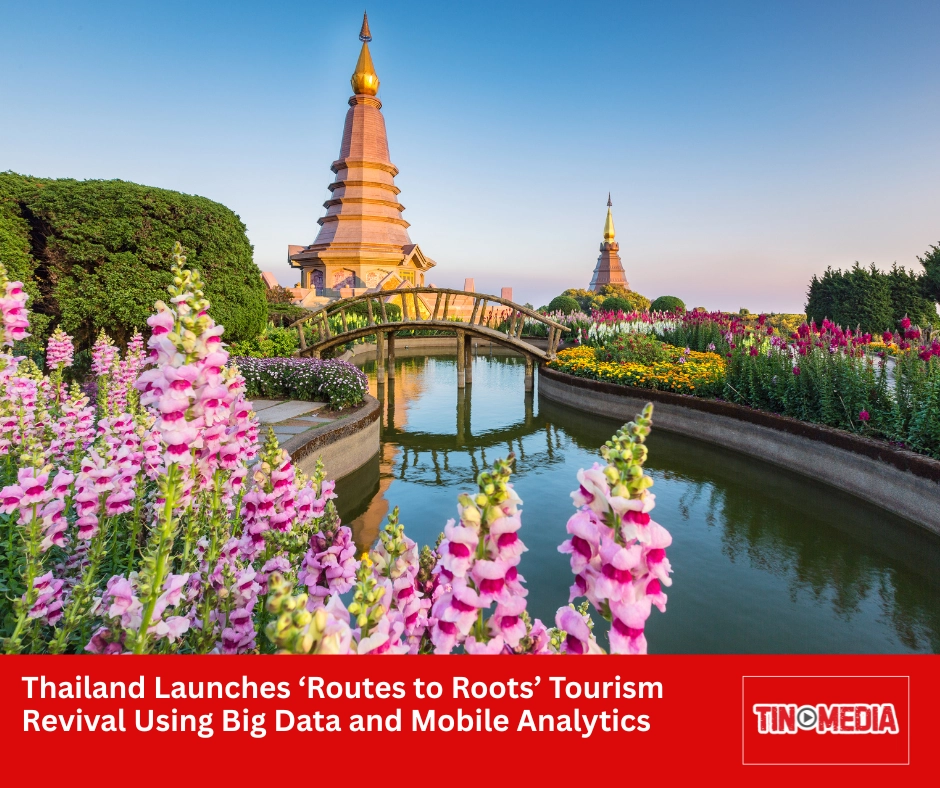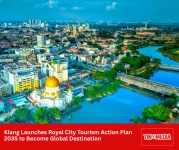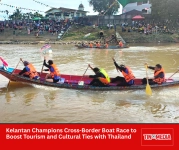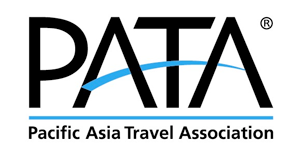Thailand has unveiled an innovative data-driven initiative titled “Routes to Roots”, aimed at rejuvenating its tourism industry by tapping into the hidden potential of lesser-known destinations across the country.
The programme, launched in collaboration between the Ministry of Higher Education, Science, Research and Innovation, True Corporation, and academic institutions, utilizes over 500 million mobile phone mobility records to identify 21 high-potential tourism clusters. This marks a strategic shift in how Thailand approaches tourism development, focusing on regional diversity and authentic local experiences.
“Research and innovation are at the heart of driving the nation forward,” said Prof. Dr. Komgrit Leksakul, Deputy Executive Director of the National Higher Education Science Research and Innovation Policy Council. “With Routes to Roots, we are turning big data into actionable insights that inform tourism policy and strengthen our competitiveness.”
Thailand’s tourism sector has lagged behind regional competitors post-pandemic, with recovery still 12% below 2019 levels. In contrast, Japan and Vietnam have seen significant rebounds. This new initiative aims to close that gap by focusing on tourism decentralisation and curated experiences.
The first rollout features six themed routes, including:
-
The Lanna Culture Route: Through Chiang Mai, Lamphun, and Lampang, highlighting centuries-old architecture and cuisine.
-
The Food Route: Featuring Chanthaburi and Trat’s unique ingredients like cardamom and wild ginger in local delicacies.
-
The Volcano Route: Exploring Buriram, Surin, and Sisaket’s geological wonders and cultural heritage.
-
The Flavour Route: A coastal culinary journey through Samut Sakhon to Prachuap Khiri Khan.
-
The Nature Route: Serene landscapes and biodiversity in Nakhon Si Thammarat and Phatthalung.
-
The River Route: Cultural exploration along the rivers of Suphan Buri, Uthai Thani, and Chai Nat.
True Corporation’s Chief Digital Officer, Ekaraj Panjavinin, added that mobility data not only enhances travel planning but also enables better crowd management, infrastructure planning, and emergency response readiness at tourist hotspots.
Each tourism cluster was selected based on five key criteria: iconic attractions, distinct target segments, clear regional roles, sustainable tourism impact, and scalability.
As Thailand continues to redefine its tourism strategy, the Routes to Roots initiative reflects a forward-thinking approach—using data science to unlock new travel possibilities while preserving cultural heritage and promoting regional economies.
- TAGS / KEYWORDS:
- trending#1


















.png)














